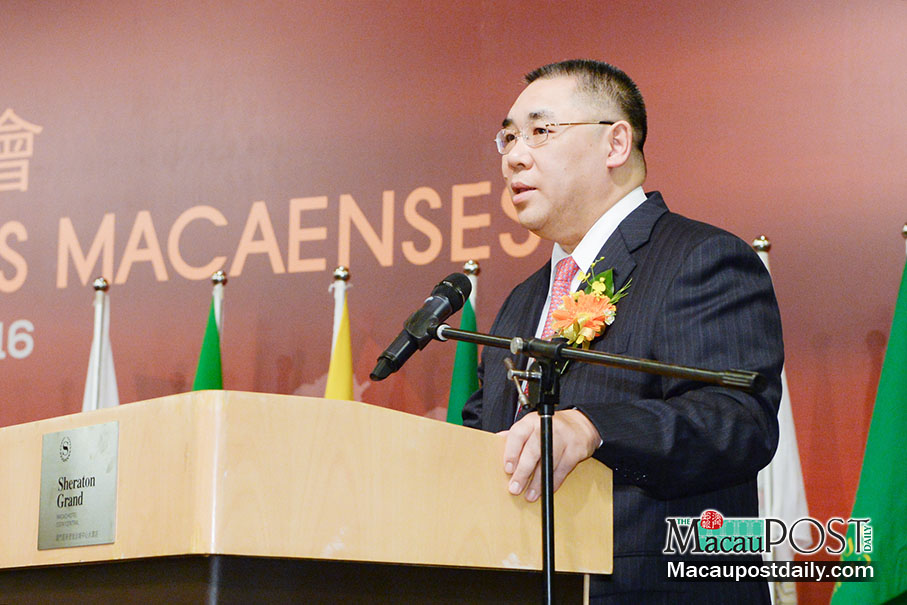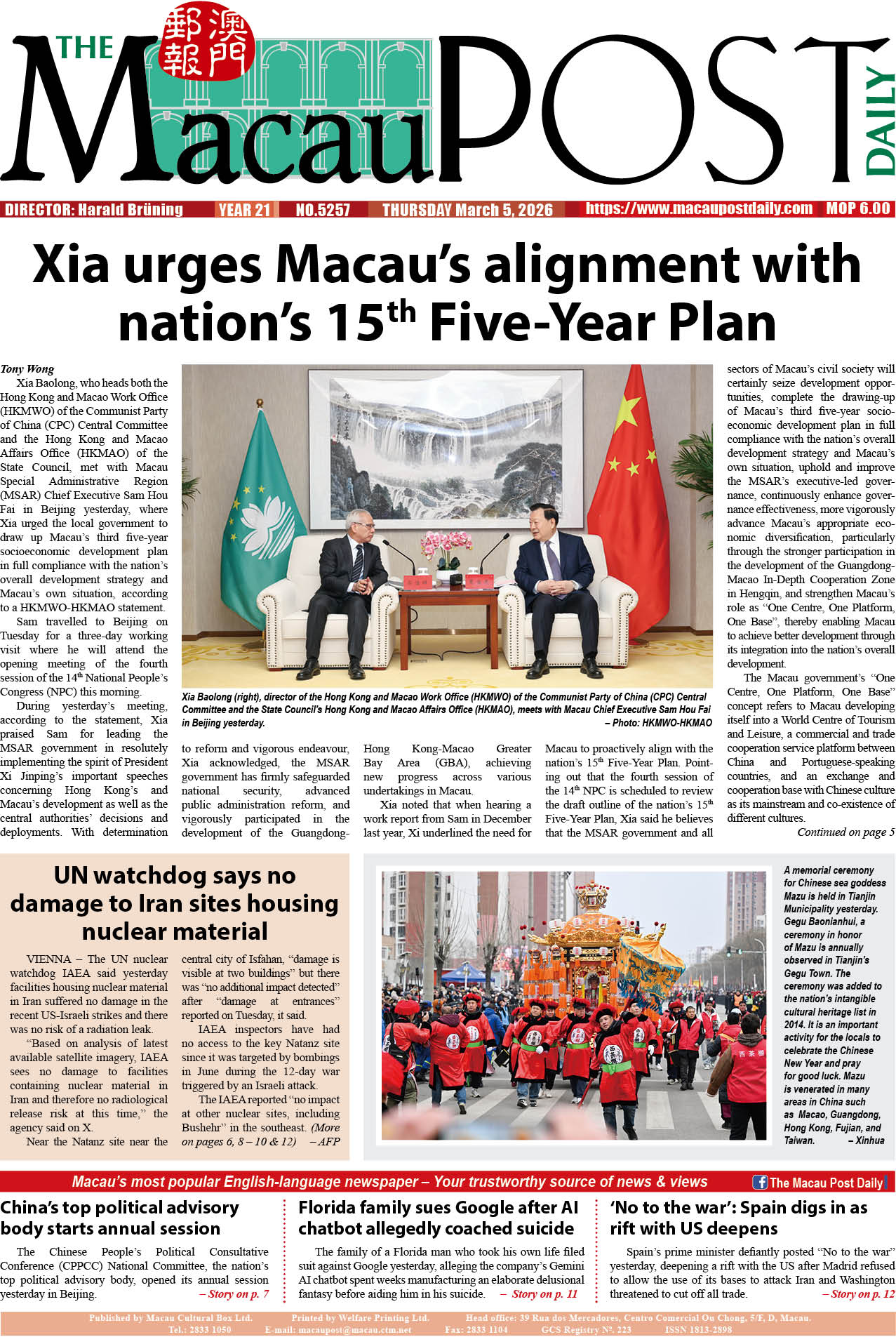Chief Executive Fernando Chui Sai On yesterday praised the “indispensable” role of the Macanese community as a “bridge of communication and exchanges between different cultures”.
Chui made the remarks when addressing the opening ceremony of the 2016 Gathering of the Macanese Communities at Sheraton Grand Macao yesterday evening.
Chui pointed out that “generations and generations of Macanese have lived and worked in this beautiful place that is Macau”, underlining that the Macanese community has its own linguistic, cultural, religious and culinary traditions and customs.
The chief executive also noted that Macau’s emergence as an important international entrepot in the middle of the 16th century linking Asia, Europe, Africa and the Americas led to the creation of a multicultural society in Macau in which the Macanese community played an important role by supporting communication and exchanges between the East and West.
Chui also praised the Macanese community for its “multilingual capacity” and “indispensable” role in Macau’s multicultural society.
The chief executive also said that the Macanese community was rich in collective memories, noting that even the sizeable Macanese Diaspora regarded Macau as their homeland.
He thanked the Macanese Communities and Macanese community centres abroad (known as Casas de Macau in Portuguese) for their hard work to get the triennial gathering off the ground.
The term “Macanese” customarily denotes Macau’s community of Portuguese-Asian extraction which is estimated to number about 8,000 locally and over 10,000 abroad, namely in the US, Canada, Brazil, Australia, Hong Kong Portugal and elsewhere. The biggest Macanese communities are based in California and Australia.
A spokesperson for the gathering told reporters yesterday that the Macanese Diaspora was present in over 30 countries.
Hundreds of members of the Diaspora are taking part in this week’s gathering which ends on Friday.
The gathering, which is sponsored by the Macau government, includes book launches, a reception hosted by the Portuguese Consulate-General, a visit to Guangzhou organised by the local Central People’s Government’s Liaison Office, and Mass at the Cathedral.
Roman-Catholicism is one of the community’s identity markers. Some Macanese still speak Patuá, the Portuguese-Asian Creole listed as highly endangered by UNESCO. Macanese cuisine, which is served in only a few local restaurants, is understood to be one of the world’s oldest fusion cuisines. Riquexo near Hoi Fu Garden estate is known for its authentic Macanese cookery.

Chief Executive Fernando Chui Sai On addresses yesterday evening’s opening ceremony of the 2016 Macanese Communities Gathering at Sheraton Grand Macao in Cotai. Photo: GCS






